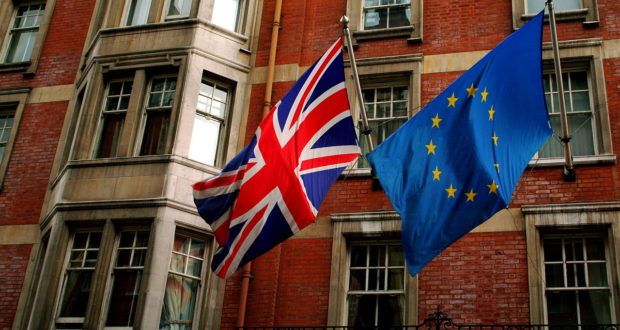10 September, 2018
Max Rodgers – Research Assistant
Every day since 24 June 2016, when the UK voted to leave the European Union, the shape of the future relationship between the two has not been out of the news. As a result, topics such as trade deals, divorce payments and party-political splits have dominated coverage of Brexit. Furthermore, as time ticks down to the 29 March 2019 exit date, there has been intense focus on the state of negotiations, with both rampant Brexiteers to ardent Remainers tending to agree that the talks are not going particularly well.
One often forgotten area of the Brexit negotiations is to do with the future of security co-operation after Britain leaves the union. Unlike immigration, trade and finance, the issue tends to be one where all factions agree on the general principles. Nobody disputes that security co-operation should continue between the UK and EU after Brexit. Instead, the questions revolve around just what form security co-operation takes – specifically, how it will deviate from current arrangements. This is where division sets in.
After Jonathan Hill resigned as Britain’s EU Commissioner in the wake of the Brexit vote, Sir Julian King was named as his replacement. King, a former British Ambassador to France and UK Representative to the EU’s Political and Security Committee, was allocated the Security Union portfolio by President Juncker, instead of the Financial Services brief formerly held by Hill. The appointment represented both an honour and irony for Britain. The EU has heralded closer security co-operation as an area for progress and therefore to allocate the role to Britain, instead of giving the British Commissioner a demotion to a less important portfolio, showed promise. However, given that a core motivation of the Brexit vote had been opposition to closer integration with the EU, it also seemed a paradox. Indeed, despite the appointment of King as Security Union Commissioner, the UK and King have struggled to assert the agenda his post is built upon both within day-to-day EU business on the issue, as well as in Brexit negotiations.
In overarching terms, it is expected – or at least hoped – that co-operation on security and intelligence matters between the UK and EU will continue unabated, given the serious nature of the terrorist, extremist and criminal threats that they mutually face. Indeed, a Brexit policy paper published by the British government earlier this year outlined a plan for a new security treaty that would sustain current arrangements. The EU has welcomed London’s proposals, but obstacles remain.
For its part, the poorly conceived assertion by some elements within the UK camp that the security issue could be leveraged to obtain a better trade deal has soured talks. The Director-General of MI5, Andrew Parker, recently went on a goodwill tour in EU nations to abate any tensions that may have resulted from such speculation. Similarly, relevant UK ministers, past and present, have given assurances that security remains outside of negotiating tactics. However, there is cause to speculate that as the pressure for the UK to secure a good Brexit deal mounts ahead of March 2019, the government will succumb to temptation and use security as leverage.
The issues facing the EU are largely institutional. As a third-party country, the UK can naturally not be granted the same level of privilege as an EU member post-Brexit. This problem has most clearly manifested over British access to Galileo, the EU’s satellite navigation system. Britain wishes to keep access to the encrypted element of the positioning system, which will help it to guide missiles and plan military operations. However, the EU is reluctant to allow such access. The British have expressed resentment at this stance – not least given their own billion-pound investment in the programme. Business Secretary Greg Clark threatened the idea of Britain developing its own satellite navigation system after Brexit, should access to sensitive data not be part of an exit deal or if Britain leaves without a deal. However, the cost of such a system would amount to many billions more that the UK can ill-afford.
There will be much pressure on both sides going into the autumn to produce a deal for ratification ahead of March 2019. With outstanding questions on trade, immigration and services yet to be resolved, security could lose out in the last-minute rush as something assumed to be ‘easy’ to resolve, in the sense that negotiators will prioritise the issues with more difficult questions which have received more public attention. It should be hoped that this does not happen, as recent examples such as the Galileo spat have shown that security is not something that is wholly resolved. It is true that there is more commonly accepted ground than the other areas, but this does not mean that the issue should lose priority from either side.
Furthermore, security is an area where Britain could make some progress in the final negotiations. As a former Home Secretary, Theresa May has experience of negotiating on security matters with the EU, her successes in this area playing a part in why she became a frontrunner for the Conservative leadership in 2016. Now, in a Whitehall where May and Olly Robbins have assumed command of negotiations, relegating DEXEU to a no-deal preparation role, there is likely to be more of a focus on security given it is an area where the PM will feel she can make some progress to negate any concessions that could be made in other areas.
As with anything else to do with Brexit, the end is uncertain. What can be said definitively, however, is that security has been an issue with little attention paid to by the media, but could become more prominent as time goes on.
Image source: Robert Laymont
 Human Security Centre Human Rights and International Security Research
Human Security Centre Human Rights and International Security Research




